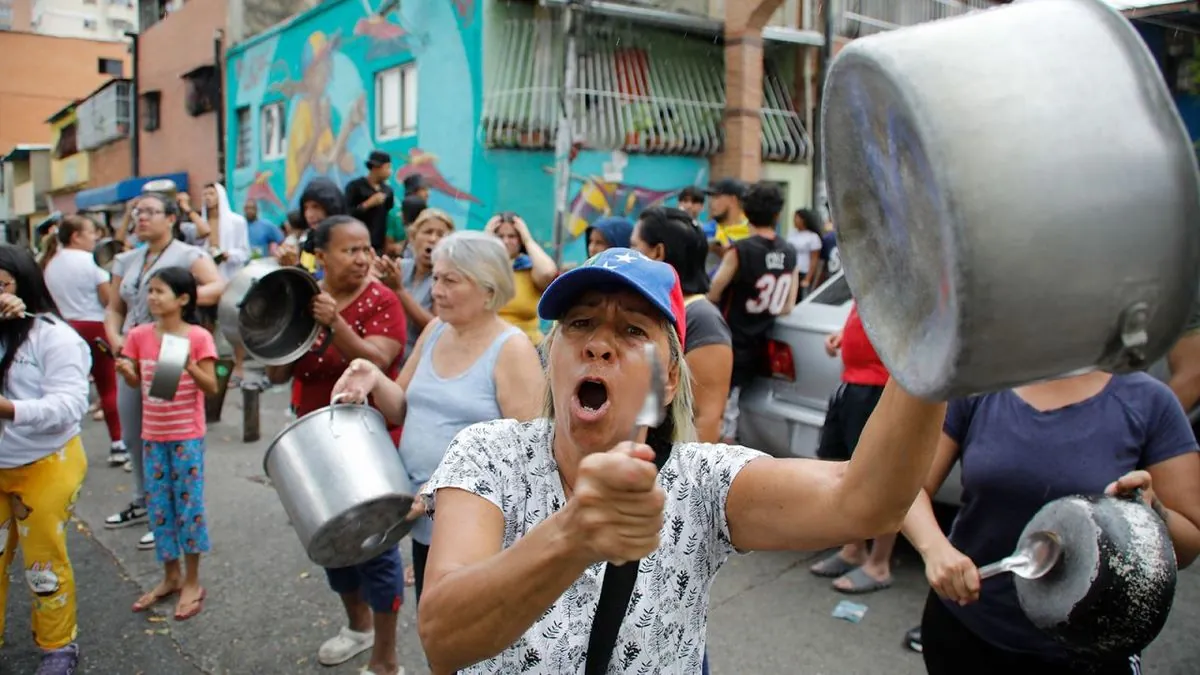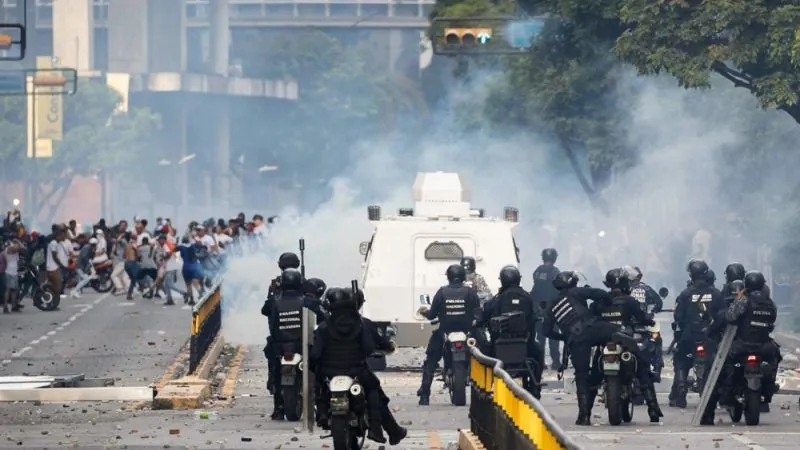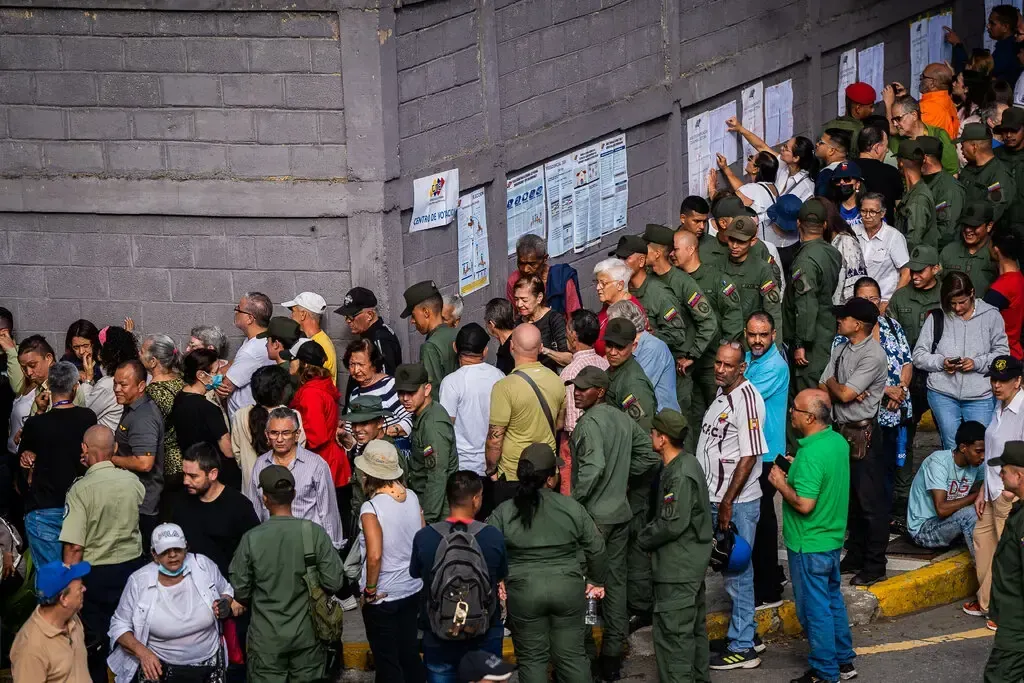Venezuela on fire: what is happening in the country after Maduro is declared the winner of the presidential race
Kyiv • UNN
Mass protests have erupted in Venezuela after Nicolas Maduro was declared the winner of the presidential election. The opposition alleges fraud, while the US and a number of countries are demanding that the full results of the vote be made public.

After the official results of Venezuela's presidential election were announced, protests erupted by dissenters to declare incumbent head of state Nicolas Maduro the winner of the electoral race. UNN has gathered information for you about what is happening in the country.
What's happening on the streets of cities
Protests began in the nation's capital Caracas immediately after authorities announced Maduro's election victory. The streets of the city, including near the Miraflores presidential palace, were filled with thousands of people who disagreed with the outcome.
In many parts of the country, people staged traditional Venezuelan “cacerolazo” demonstrations, a protest in which participants bang pots and pans.
“I don't want gold, I don't want CLAP (government food aid program), I want Nicolás (Maduro) gone,” chanted protesters banging pots.

In Caracas, police fired tear gas and rubber bullets at protesters. In the streets of the city, police have been forced to erect protective barriers to keep protesters out. Protesters threw Molotov cocktails and rocks at police.
At least two people were killed and 46 others were detained during the clashes in the country. Authorities claim 23 wounded soldiers, some of whom were allegedly hit with firearms.

In the city of Coro, protesters tore down a statue of the country's past president, Hugo Chavez, who once named Maduro as his successor. According to media reports, this is probably not the only Chavez statue damaged during the rallies.
Protests against the authorities have erupted in Venezuela many times before, but previously they were not as large.
Causes of aggravation
Nicolas Maduro, 61, has been president for two consecutive terms. He became head of state after the death of Chavez in 2013. Maduro was re-elected for a second term in 2018, but many countries, including the United States, did not recognize the election results.
Now, despite citizen protests, Maduro has been declared president for a third term and is set to lead the country until 2031.
Back in 2017, Venezuela came under U.S. sanctions that were gradually tightened.
In 2023, as a result of an agreement reached between the opposition and Maduro, the latter promised to hold fair and just presidential elections. This decision was made, among other things, in exchange for the easing of sanctions by the United States.
Sanctions and failed economic policies of the authorities have led to the flourishing of poverty across the country, the country has experienced the worst economic collapse, which is called the most massive in the world's modern history. According to international analysts, some 8 million Venezuelans have fled their homelands during Maduro's time in power. According to population polls, if Maduro's rule continues, another third of the country's residents would consider leaving the country.
The people of the country are at rallies demanding freedom and an end to the policy of “chavismo” that the incumbent president continues. They claim they have been deceived.
Election results and opposition
Members of the opposition also believe Maduro has deceived them and violated earlier agreements to hold fair elections.
The government-controlled National Electoral Council (CNE) declared Maduro's victory after voting on Sunday. However, at this point, other than the final election results, the CNE has not provided any information on the distribution of all electoral votes.
At the same time, CNE President Elvis Amoroso said, “Venezuela has the best electoral system in the world!”.
At the same time, the election and counting process was accompanied by a huge number of complaints from the opposition. In addition, opposition representatives were reportedly denied access to the CNE central office during the final vote count. The opposition also claimed that a significant portion of the votes were simply not processed and counted. Authorities were also accused of manipulating turnout through the use of software.
Maduro and his supporters deny all accusations.
At the same time, representatives of the opposition coalition say they have confirmation that opposition candidate Edmundo Gonzalez won the election - according to them, he received 73% of the popular vote (6 million, while for Maduro, according to the opposition, voted only 2.7 million voters).

International situation around Venezuela
The United States is among regional leaders, including Peru and Chile, who have raised the issue of the credibility of election results.
The United States demanded that the Venezuelan authorities immediately make public the specific results of the vote. Brazil also joined this demand, albeit in a much milder form.
However, it is not yet clear whether any measures, including tougher sanctions, will be applied if the Venezuelan authorities refuse to publish the full election results, including information from the districts. Or if facts of fraud and manipulation during the electoral process are proven.
The Venezuelan government, for its part, said it was expelling diplomatic personnel from Argentina, Chile, Costa Rica, Peru, Panama, the Dominican Republic and Uruguay, calling them “right-wing, subordinate governments to Washington” that hold “the most abhorrent fascist ideological positions.
Victory for Maduro is a matter of principle
Maduro needs this electoral victory. After all, he is facing charges of drug trafficking and corruption in the United States. He is also under investigation for crimes against humanity at the International Criminal Court. If he loses his position, he could end up in prison.